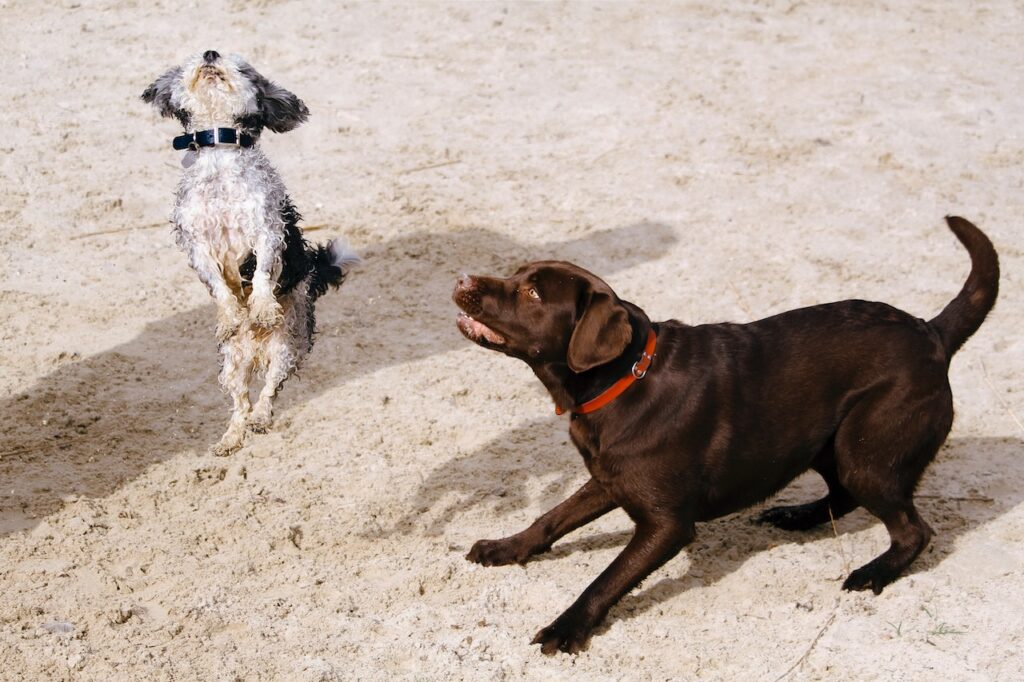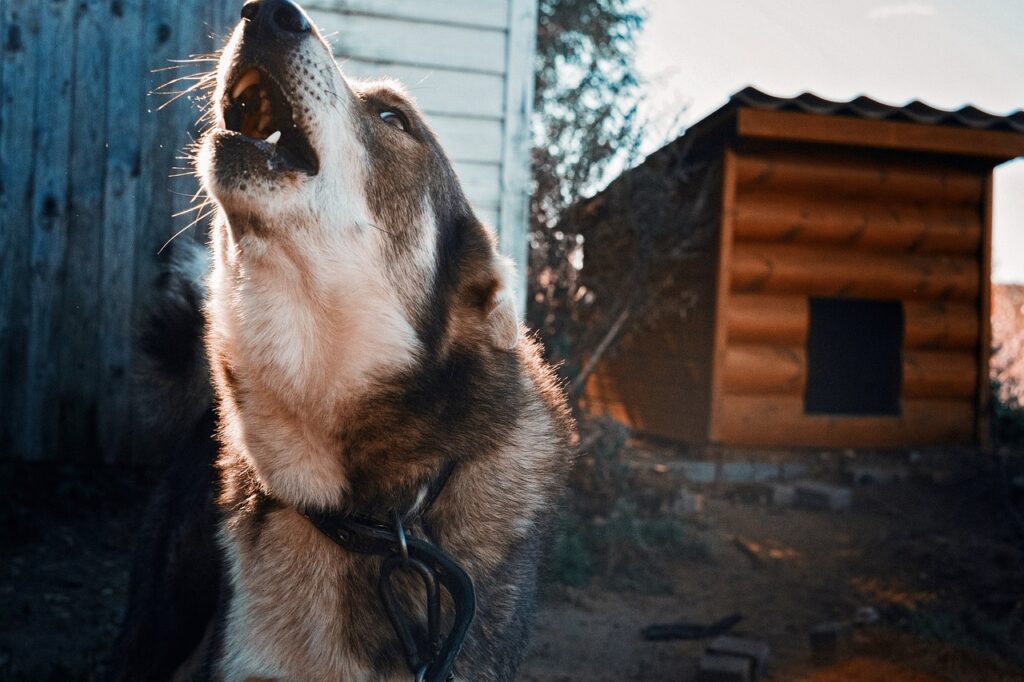Neutering is an important procedure for dogs that offers numerous benefits for both the dog and their owner. It involves the surgical removal of the testicles in male dogs, which eliminates their ability to reproduce. Neutering is commonly recommended by veterinarians as a way to control the pet population and prevent unwanted litters. In addition to population control, neutering also has several physical and behavioral benefits for dogs.
The neutering procedure is typically performed under general anesthesia by a veterinarian. The dog is carefully monitored throughout the surgery to ensure their safety and well-being. The testicles are removed through a small incision in the scrotum, and the incision is then closed with sutures. The recovery period after neutering is relatively short, with most dogs returning to their normal activities within a week.
Key Takeaways
- Neutering is a surgical procedure that removes a dog’s reproductive organs.
- Physical changes after neutering include reduced risk of certain cancers and elimination of heat cycles.
- Behavioral changes after neutering may include reduced aggression and marking behavior.
- Neutering can lead to decreased energy levels and a potential increase in appetite and weight.
- Social behavior may change after neutering, but proper training and socialization can help manage any negative effects.
Physical changes in dogs after neutering
One of the most noticeable physical changes in dogs after neutering is a decrease in testosterone levels. Testosterone is the hormone responsible for male characteristics such as muscle development and sexual behavior. After neutering, testosterone levels drop significantly, which can lead to changes in physical appearance.
Neutered dogs often have a leaner and more streamlined appearance compared to intact males. This is because without testosterone, their muscle mass decreases and they may develop a slightly softer body shape. Additionally, neutered dogs may have a reduced risk of certain health issues such as testicular cancer and prostate problems.
Behavioral changes in dogs after neutering
Neutering can also have a significant impact on a dog’s behavior. One of the most notable changes is a decrease in aggressive behavior. Testosterone is known to contribute to aggression in male dogs, so removing the source of this hormone can help reduce aggressive tendencies.
Neutered dogs are often more social and friendly towards other animals and people. They may be less likely to engage in fights or display dominant behaviors. This can make them easier to handle and more enjoyable to be around.
In addition to changes in aggression, neutering can also have an impact on a dog’s anxiety levels. Some studies have suggested that neutered dogs may be less prone to anxiety and fear-based behaviors. This could be due to the decrease in testosterone, which is known to play a role in stress responses.
How neutering affects a dog’s energy levels
Neutering can potentially lead to a decrease in a dog’s energy levels. Testosterone is responsible for driving sexual behaviors and can contribute to increased activity levels in intact males. By removing the source of this hormone, neutering can result in a calmer and more relaxed dog.
It is important for dog owners to be aware of these potential changes in energy levels and adjust their pet’s exercise routine accordingly. Neutered dogs may not require as much physical activity as intact males, but they still need regular exercise to maintain their overall health and well-being.
The impact of neutering on a dog’s appetite and weight
Neutering can also have an impact on a dog’s appetite and weight. Testosterone plays a role in regulating metabolism, so removing this hormone can potentially lead to changes in appetite and metabolism.
Some neutered dogs may experience an increase in appetite, which can lead to weight gain if not managed properly. It is important for dog owners to monitor their pet’s food intake and adjust their diet accordingly to prevent obesity.
Changes in a dog’s social behavior after neutering
Neutering can also have an impact on a dog’s social behavior, particularly when it comes to interactions with other dogs. Neutered dogs are often more social and less likely to engage in aggressive or dominant behaviors towards other animals.
However, it is important for dog owners to continue socializing their pets even after they have been neutered. Socialization helps dogs develop appropriate social skills and can prevent behavioral issues from arising in the future.
How neutering can affect a dog’s aggression levels
Neutering can have a significant impact on a dog’s aggression levels. Testosterone is known to contribute to aggressive behaviors in male dogs, so removing the source of this hormone can help reduce aggression.
Neutered dogs are often less likely to engage in fights or display dominant behaviors towards other animals. However, it is important for dog owners to continue training and socializing their pets even after they have been neutered to ensure they develop appropriate behaviors.
The impact of neutering on a dog’s territorial behavior
Neutering can also have an impact on a dog’s territorial behavior. Testosterone is known to contribute to territorial behaviors in male dogs, so removing the source of this hormone can help reduce territorial tendencies.
Neutered dogs are often less likely to display aggressive or protective behaviors towards their territory. However, it is important for dog owners to continue training and socializing their pets even after they have been neutered to ensure they develop appropriate behaviors.
Managing post-neutering anxiety in dogs
Some dogs may experience anxiety after being neutered. This could be due to the stress of the surgery or the changes in hormone levels. It is important for dog owners to be aware of this possibility and take steps to manage their pet’s anxiety.
One way to help manage post-neutering anxiety is to provide a calm and quiet environment for the dog during their recovery period. This can help reduce stress and promote relaxation. Additionally, providing plenty of mental and physical stimulation through activities such as puzzle toys and gentle exercise can help distract the dog from their anxiety.
Tips for helping your dog adjust to life after neutering
After being neutered, dogs may need some time to adjust to their new hormone levels and physical changes. Here are some tips for helping your dog adjust to life after neutering:
– Exercise and activity recommendations: Neutered dogs may have lower energy levels, so it is important to adjust their exercise routine accordingly. Regular exercise is still important for their overall health, but it may need to be less intense or shorter in duration.
– Dietary recommendations: Neutered dogs may have changes in appetite and metabolism, so it is important to monitor their food intake and adjust their diet as needed. Consult with your veterinarian to determine the appropriate amount and type of food for your dog.
– Behavioral training recommendations: Neutering can have an impact on a dog’s behavior, so it is important to continue training and socializing your pet even after they have been neutered. This will help them develop appropriate behaviors and prevent behavioral issues from arising in the future.
Neutering is an important procedure for dogs that offers numerous benefits for both the dog and their owner. It helps control the pet population, reduces the risk of certain health issues, and can have a positive impact on a dog’s behavior. It is important for dog owners to be aware of the potential physical and behavioral changes that can occur after neutering and take steps to manage them effectively. By providing proper care and attention, dog owners can help their pets adjust to life after neutering and ensure their long-term health and well-being.
If you’re interested in learning more about dog behavior after neutering, you may also find this article on “Understanding Why Dogs Howl at Night” informative. Howling is a common behavior in dogs, and this article explores the reasons behind it. From communication to territorial instincts, understanding why dogs howl can help you better understand your furry friend’s behavior. Read more here.



